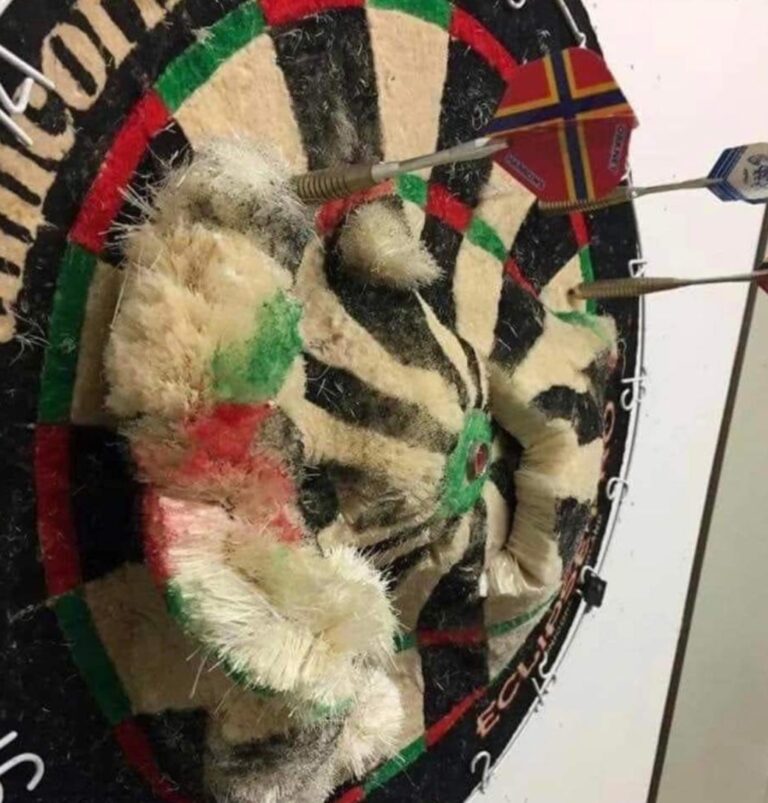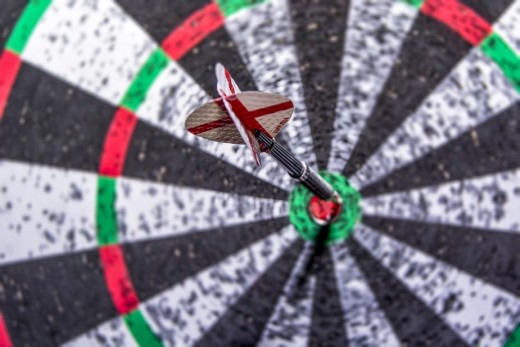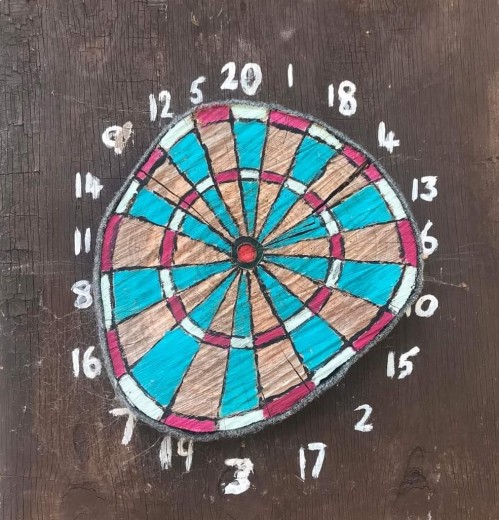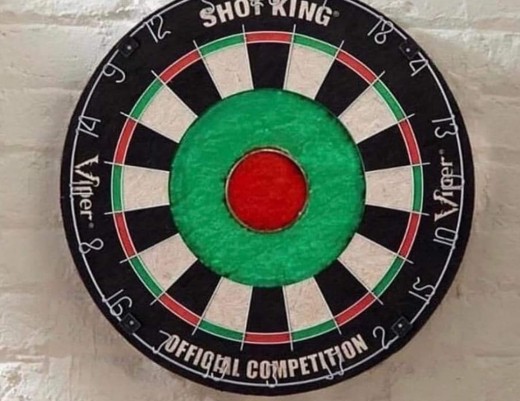Wednesday, August 2, 2023
Column 625
VIVA LAS VEGAS!
With planning for the January 19-20, 2024, Golden Era Dart Players Stacy Bromberg Senior Open well under way (much more to follow) my thoughts have already turned to yet another trip to Las Vegas.
Blasphemous as it may be, if I am to be honest, each time I head to Vegas – for years to the North American Open and then the Desert Classic – my first thoughts are not of darts. I can’t help it. Instead, my mind is inevitably drawn to faded memories of another time, a wonderful time, not so long ago as it seems, when I used to while away the most enjoyable of hours with my old best friends. Randy, Ross, Fred and John…
For so many years, as I’ve wandered through the heat with the milling crowd along the neon Strip, and contemplated how my darts might fly in the morning, I’ve always felt something was missing. Once it was my wallet, but that’s another story.
We all grew up in the same neighborhood on the east side of Flint, Michigan. Flint is a factory town, famous for a 44-day sit-down strike in 1936 against General Motors at one of the Fisher Body plants, in 1989 for Michael Moore’s movie Roger and Me – and then about ten years ago for a massive crisis caused by contaminated water. During my high school years in the late 1960s something like 70 percent of all family income in Flint was directly related to assembly line labor, primarily General Motors and AC Spark Plug.
But our fathers didn’t work in the shops. I guess that means we were middle-class kids. Fred’s dad was a lawyer. Ross’ mother was on the school board. John’s dad was the golf coach at the community college. We did middle-class teenage boy things. Randy played soccer. Ross ran cross country. Fred pole vaulted. I was on the swimming team. We hung out at the Kewpee hamburger joint downtown, ate cheeseburgers (with olives), drank cherry cokes and talked big about the same girls.
But best of all, for the better part of a decade, at least one night a weekend, and often both, we gathered in the sanctity Randy’s basement. Through penny ante times in junior high to quarter ante games in high school to even larger stakes after we all graduated and got jobs, Randy’s basement was where we could all be found. This was because Randy’s mother – we called her Shirley – was cool. She let us play poker. And drink beer. Our conversation was about the cards and the odds. Our dream was to travel someday to Las Vegas together and play with the big dogs.
To the sounds of Steppenwolf and Hendrix we’d savor cans of Coors that somebody’s brother brought back from Denver. In those days that was the only way to get a Coors. We chain-smoke Camels (athletes that we were) and played the usual games. Draw and Stud. Chicago. Hi-Low and In-Between. When it was his deal, Randy would usually call something called Buckets. I never did, and to this very day still don’t understand the rules.
Of course, winning at poker depends more on how well a player postures and bluffs over the course of a long evening than it does on the cards you’re dealt. The thing is, for us, the mind games quickly became obsolete. We knew each other so intimately, we played together so long, that each of our nervous ticks and tells pretty much telegraphed the cards we were each holding. Ross would nonchalantly tug a cigarette out of his pack. John would smooth his moustache. Once, I drew four twos, screamed and fell out of my chair.
On the other hand, like most poker groups ours wasn’t about winning or losing. It was about friendship. The game was just an extension, albeit a very regular and dependable extension, of everything else we did. The game, like our friendship, was just something we could count on. It was part of the glue of our lives.
We did everything together. We organized a hop-scotch marathon and tried to establish a Guinness World Record. Another time John and I packed five 55-gallon barrels with snow as part of a plan to package the liquid in little “Blizzard” bottles and sell them in the summer to the Southland Corporation (which owner the 7/11 convenience store chain). I’m pretty sure the barrels are still in John’s garage.
Still another time, Fred and I cut work for a month straight to play the board game Risk. We ended up inventing and making a prototype with Plexi-glass of a similar three-dimensional game, with airplanes and submarines to support the little armies. I don’t remember what happened to that.
Eventually we grew up, I guess. We met for poker less and less frequently. It’s probably been thirty years, maybe more, since we’ve anted up together. Randy was the Best Man at my wedding. Fred and I exchange occasional e-mails. In fact, just a few years ago a message appeared from him asking for advice on a set of darts for one of his kids.
The last I heard, Randy, who had a small chain of jewelry stores, sold them, went back to school and became a high school mathematics teacher. Ross was a paramedic. Fred owned a nursery business. And John was refurbishing HUD houses and selling them for some pretty hefty change.
These are just some of the memories are stirring in my mind as I plan another visit to Las Vagas. My poker group… my old friends. We were kids together. We played together. We got in trouble together. We became men together. Then we went our separate ways.
The years passed. We married. We had families. Each in our own way, we achieved our dreams. All except one.
We never made it to Vegas together. It’s a shame. And it’s something I’ll be thinking about when I pull out my darts yet again at the Golden Era Dart Players Stacy Bromberg Senior Open. I wish they were here.
That’s because Randy, Ross, Fred and John are the only four guys in the whole wide world who I am absolutely certain I can beat.
From the Field,
Dartoid








